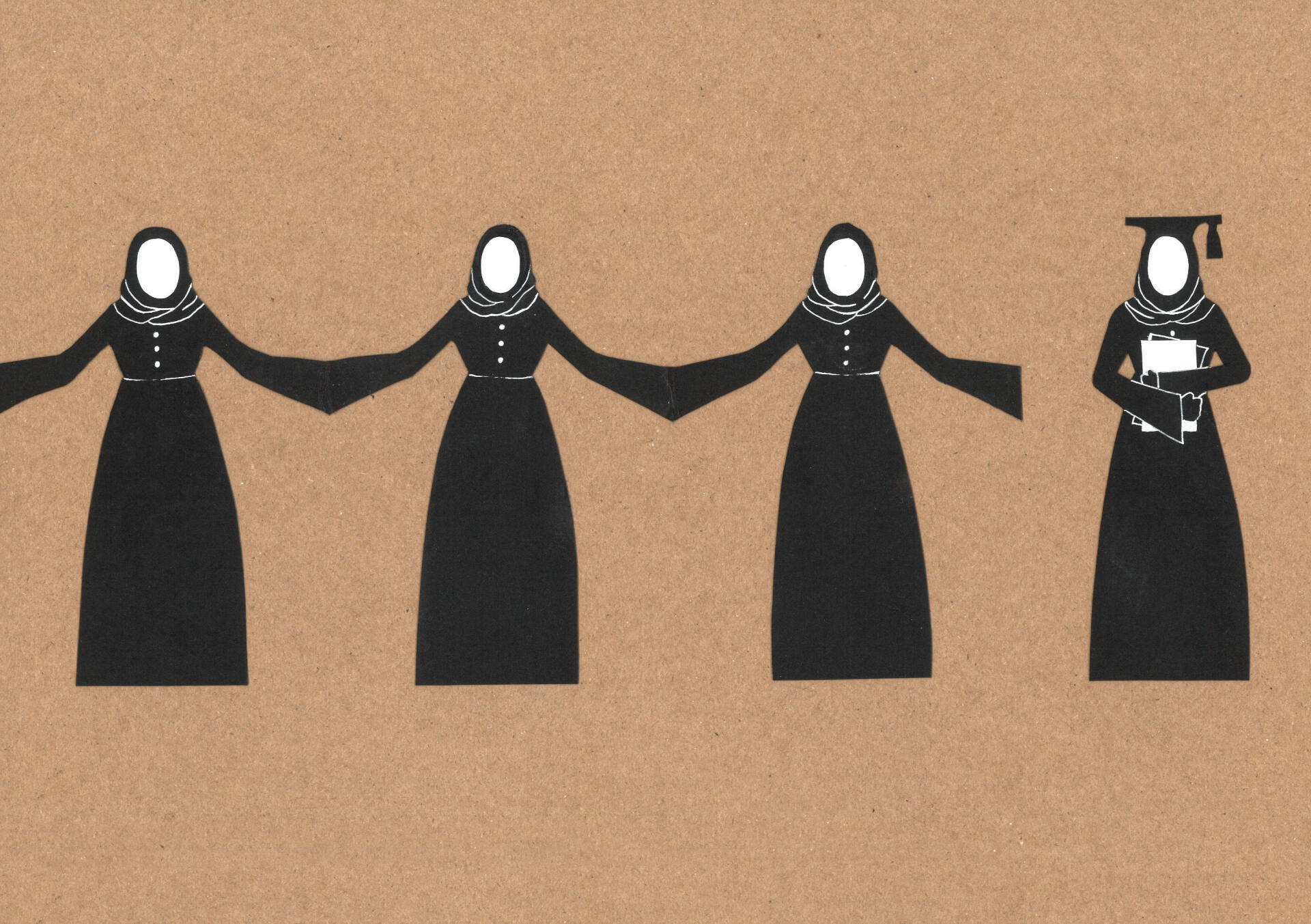£75.00

'Finally I knew I was a person in my own right, not dependent on others.'
In Bedouin communities, as well as wider Muslim society, women are considered to be 'the agents of preservation and maintenance of family, ethnic and religious stability.' For Bedouin families, a young woman's maternal and domestic roles take priority whether she is educated or not. For Bedouin women themselves, education is often empowering, allowing them to develop a sense of self for the first time and to develop their own ideas and interests. However, this sense of empowerment can be accompanied by feelings of alienation from their community and their culture.
‘Paper dolls’ are used to represent the endless chain of wives and mothers, upholding their traditional roles and duties. However, the chain is broken. Is the lone figure empowered and independent or alienated and isolated?
